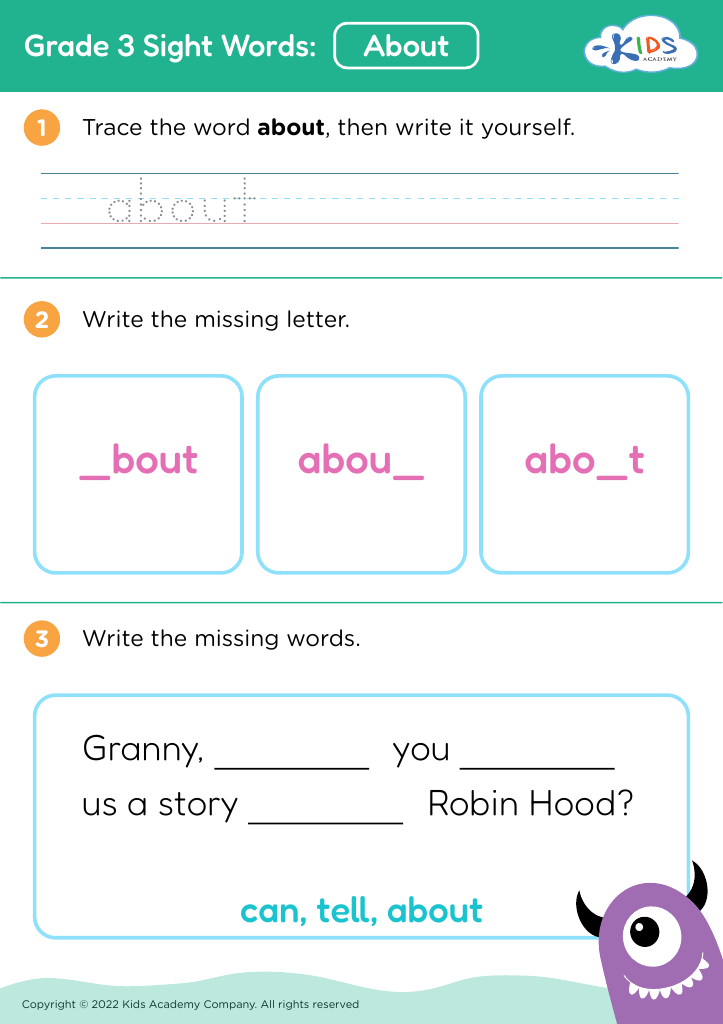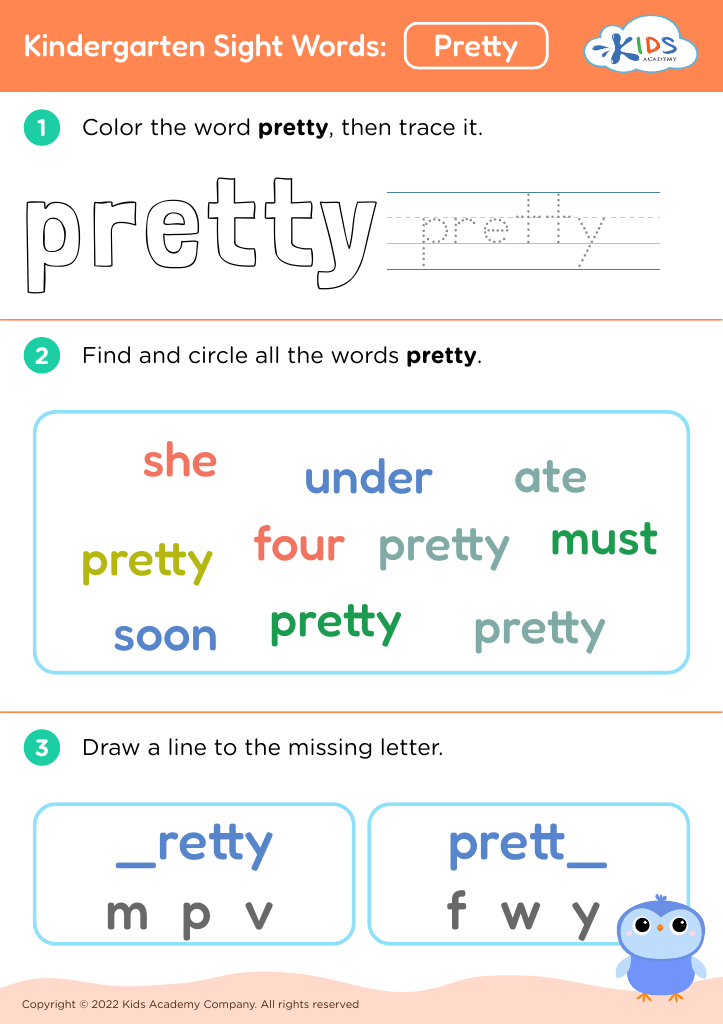Practice addition Reading Worksheets for Ages 4-8
3 filtered results
-
From - To
Discover a fun and engaging way for children ages 4-8 to practice addition with our collection of reading worksheets! Designed to enhance both reading and math skills, these worksheets combine colorful illustrations with intuitive exercises that make learning enjoyable. Each worksheet encourages kids to solve addition problems through engaging stories and interactive prompts. Ideal for classroom use or at-home learning, our resources support young learners in developing their mathematical understanding while improving reading comprehension. Easy to download and print, these materials provide an effective way to reinforce essential skills in a playful manner. Start your child’s learning journey today!
Practice addition reading for children aged 4-8 is crucial for several reasons. Firstly, this age range serves as a pivotal period for cognitive development, where foundational skills in math and reading drastically shape future learning. Developing a strong understanding of addition not only encompasses numerical literacy but also enhances problem-solving and critical-thinking skills.
Looking beyond math, practicing addition through engaging reading materials intertwines language development with numerical concepts. Children learn to associate numbers with practical, relatable contexts, reinforcing comprehension and retention. Furthermore, when parents or teachers actively participate in this practice, it fosters a supportive learning environment, thereby increasing motivation and confidence in young learners.
Social skills are also nurtured through collaborative addition reading activities, as children learn to engage and communicate with peers or adults while exploring challenging concepts. Lastly, an emphasis on these fundamental skills lays the groundwork for advanced mathematical operations in later years, promoting academic success. In cultivating a love for learning early on, parents and teachers pave the way for well-rounded, capable individuals who are prepared for future educational challenges. Thus, dedication to addition reading is an investment into not only a child's academic future but also their overall development.



















